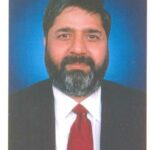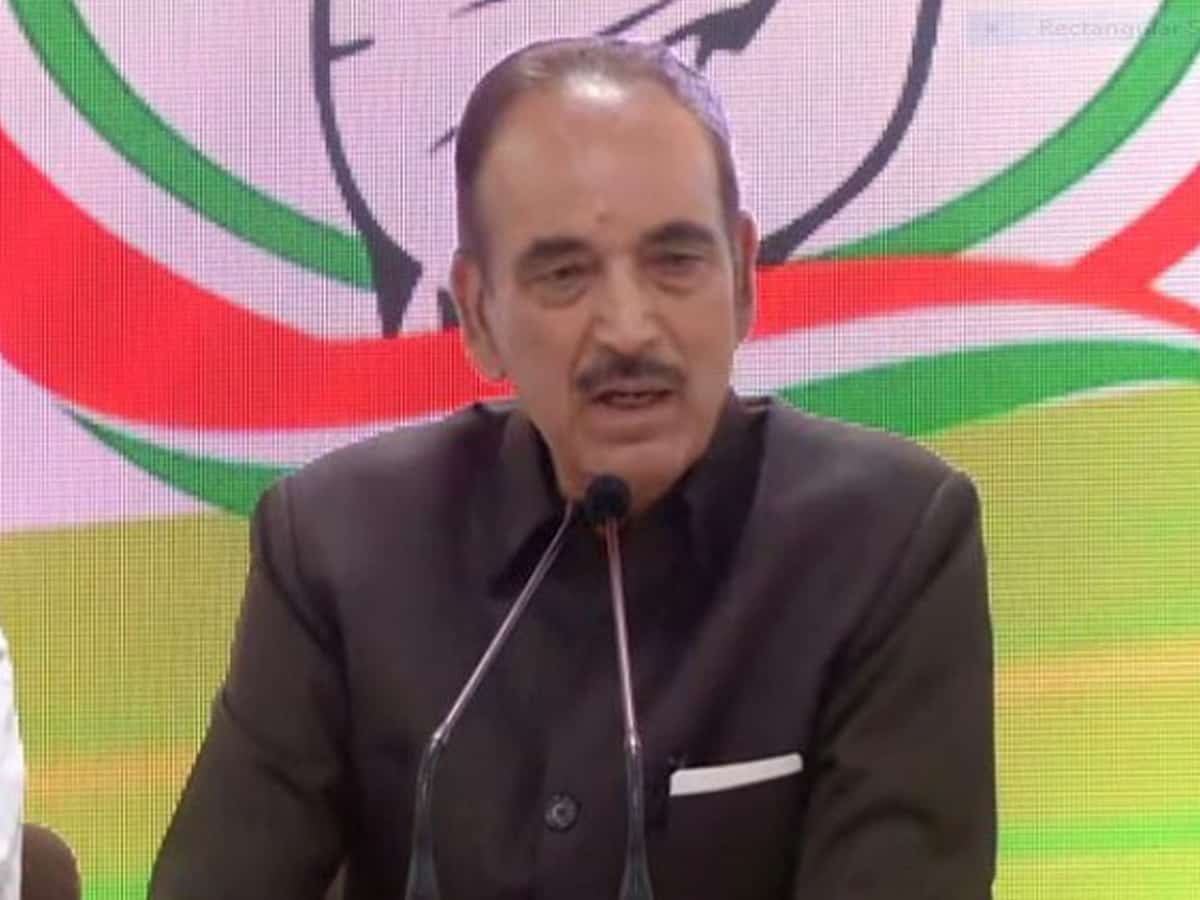
Veteran Congress leader Ghulam Nabi Azad is back in J&K politics with a bang , bringing with him a rich experience in national politics rooted in his native land where he is seen as a bridge between the communities and regions, currently under strain . He has tasked himself with a new assignment to remove the politics of hate and Kashmir versus rest of the country from the discourse, which is becoming an international embarrassment and giving a handle to the inimical forces to exploit the same.
His re-entry into J&K politics, his supporters expect , is set to change the political landscape and also arrange new political equations that gel with the traditional ethos of the place , which was once an example of communal harmony .
In the recent months, Azad, who is better known as a politician who started the development works in right earnest , during his tenure as Chief Minister from 2005-2008 . His becoming of Chief Minister in 2005 had ended a long spell of three decades of Congress out of power – the last time the party was in power in 1975 before it offered the government to Kashmir’s towering leader Sheikh Mohammad Abdullah , due to the Indira-Sheikh Accord.
Ghulam Nabi Azad, who hails from Bhalesa, a remote area in mountain-locked Doda district in Jammu region of Jammu and Kashmir , has been visiting the Union Territory on a regular basis, meeting his party colleagues, civil society and business leaders , highlighting a singular theme of restoration of the statehood to J&K, and holding of Assembly elections.
Ghulam Nabi Azad in Jammu And Kashmir Politics
Azad’s re-entry into J&K politics at this stage is considered very important development because of his current profile – one of the leading lights of G-23 in Congress , stressing for the inner-party democracy , mutual admiration between him and Prime Minister Narendra Modi. PM’s praise for the experience and compassion in politics early this year in Rajya Sabha , where he led the opposition for a number of years , added yet another feather in his cap. The political observers did not miss what PM said about him ,” We will not allow him to retire like this. We will keep him engaged”. He had returned the compliment , when during his visit to Jammu, along with other leaders of his group , Kapil Sibal, Manish Tiwari and Anand Sharma , as he hailed the PM conscious of his humble origin as a “ tea seller.” “ That he( Modi) has not forgotten his roots ( of being a tea seller) speaks of greatness of the person.” This was read as growing understanding between him and Modi, who , many believe in the country, has ushered in a new era of politics in the country.
At the moment, Jammu and Kashmir is in throes of political turmoil, with uncertainty dotting the landscape , where no single political party can claim to have their appeal among all the communities and regions . Traditional Kashmir-centric parties , National Conference of Farooq Abdullah and Omar Abdullah , and the People’s Democratic Party of fiery leader Mehbooba Mufti , are seen as the promoters of the Muslim cause . They are fundamentally inclined towards the narrative that Delhi under Modi’s rule was trying to change the demographics in Kashmir. In political translation, it means that the Muslim-majority character of Kashmir is being undermined with the introduction of newer central lands where the land of the natives was at risk of being lost to outsiders. They have also accused the BJP government at the Centre of “ intimidating Kashmiris by frequent crackdown on the Valley residents, particularly youth, and suppressing the dissent by the use of force.”
Their ideology is being resented by the BJP, which believes that it is strong in Jammu region , though the fact is that its acceptability is good in Hindu-dominated plains, while the hills where Muslims constitute majority, are silently opposed to the saffron party’s policies. The fissures have grown to the breaking point .
Azad, having an unimpeachable image of being a man with extraordinary secular credentials and also that of a hardcore nationalist who believes in the idea of India, and he had made a mark in J&K politics, when he used to conclude all his speeches, including in the militancy infested places like Sopore and Baramulla with “ Jai Hind”, hailing India , despite being cautioned that it amounted to courting trouble for his life and politics . “ I am Indian, and this is my commitment and conviction , I cannot compromise it for saving my life or votes,” he would say it with greater emphasis.
Azad, his colleagues believe is trying to rejuvenate the politics of unity of minds and hearts , as he made it clear when he declared” no party is untouchable.”
His call for the restoration of statehood to J&K that was bifurcated into two union territories in August 2019 , with Ladakh getting the UT, and its own status degraded from a majestic state to UT, has appeal all over the region , which is dying to become state yet again . That also is the case for the early elections in J&K – the Assembly elections in J&K are being awaited for more than three years .
Arun Joshi is a Senior Journalist, Political Analyst based in Jammu and Kashmir. He has authored four books, including, “Eyewitness Kashmir: Teetering on Nuclear War”. He has worked with Hindustan Times, The Times of India, The Indian Express and The Tribune, and visited several countries to deliver lectures on Kashmir issue and international affairs.
Views expressed are personal

